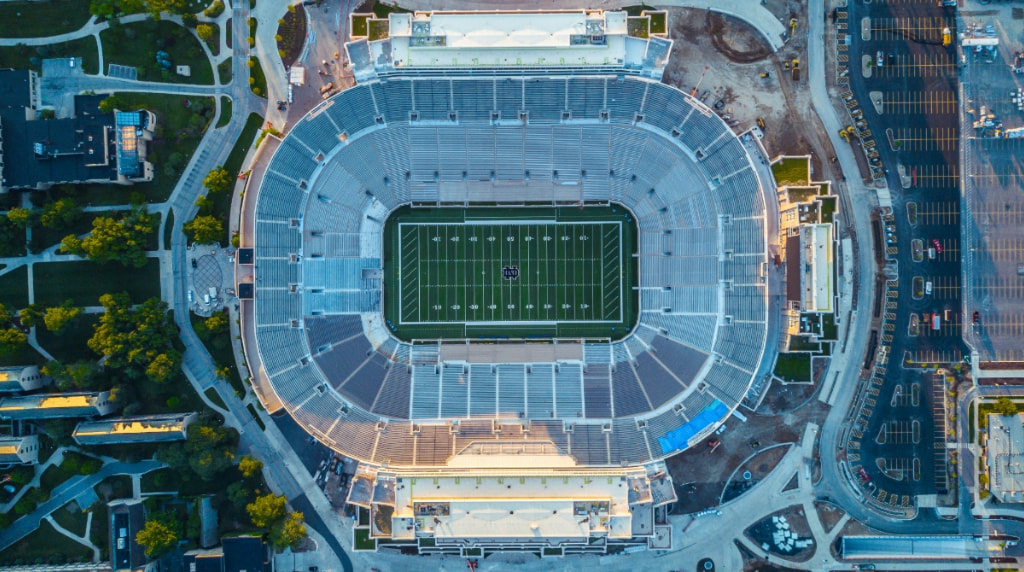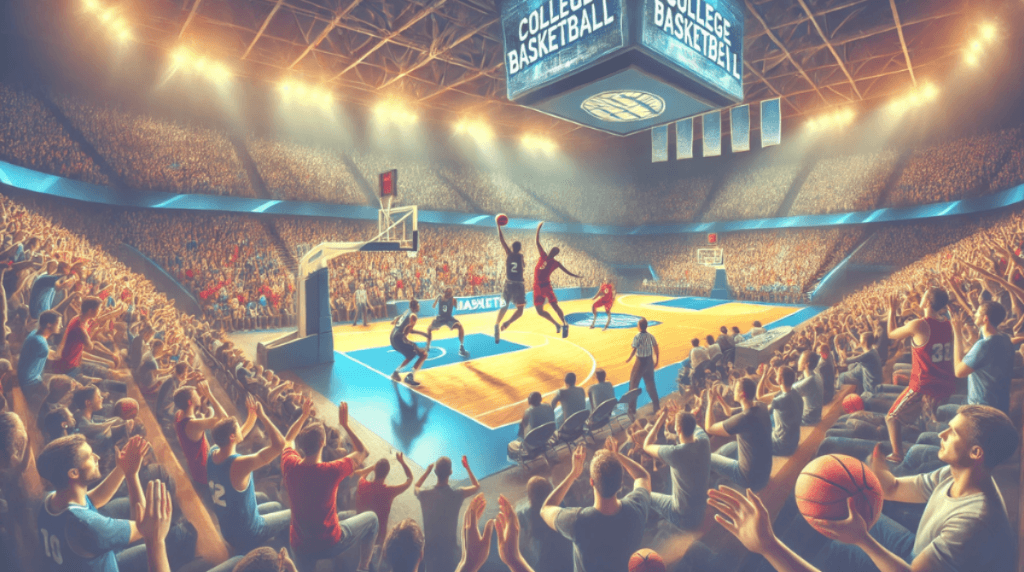NJ’s Move to Ban College Prop Bets: What It Means for Sports Betting
Under increasing public pressure from the NCAA, New Jersey is the next state to consider banning prop bets that involve college athletes. These types of bets revolve around an individual athlete’s performance, such as passing yards for a quarterback, shots blocked for a college basketball player, or even shots on goal for a soccer player. However, they often inspire ire from losing bettors.

Regulations are increasing on college sports betting. © Alex Mertz, Unsplash
New Jersey Begins to Walk Back College Sports Betting
New Jersey ushered in the modern sports betting era with its win in the Murphy vs. NCAA Supreme Court fight in 2018. With the fall of PASPA, 38 states have legalized sports betting, but the NCAA has never forgotten and continues its fight against college sports betting in rear-guard actions in statehouses nationwide.
This time, it’s Trenton, New Jersey, in the crosshairs as the NCAA pushes Garden State legislators to ban prop bets on college athletes. They point out that college athletes are in a unique position.
Тhey must share classrooms and even dorm rooms with fellow students who are betting on games, only to turn and blame their fellow classmate student-athletes if things go wrong. This argument has already convinced a dozen states to ban college prop bets on player-specific outcomes.
College athletes deserve better. Threats of harm over a game must stop. https://t.co/example
— NCAA PR (@NCAA_PR) September 15, 2024
Many student-athletes have been vocal about the harassment, with some reporting over a hundred threatening messages on social media, many involving bodily harm either to themselves or loved ones.
Others, like Auburn Quarterback Payton Thorne, have told lawmakers about the abuse they faced on campus. However, four interceptions in a home game is unlikely to have any SEC quarterback looking forward to attending class.
In early October the NCAA released a study by Signify Group which uses AI to look at online harassment of college athletes. They found more than 5,000 abusive messages aimed at college athletes, with more than 12% of these being able to be directly tied to sports betting, and with an uptick in abusive behavior around major college athletic events such as the College Football Playoffs or the Final Four.
Making sure that college athletes don’t have their inboxes filled with death threats just for wanting to play a sport has turned out to be a popular message for the NCAA as it attempts to roll back college sports betting.
One that saw college prop bets banned in Maryland, Louisiana, Vermont, and Ohio just in 2024, with New Jersey looking likely to join them as the new bill was passed unanimously by the committee.
Reasons for Doubt
But as many in the gaming industry have pointed out, sports betting was made legal in most of these states because it prevents corruption and strengthens the integrity of the game. With an estimated 50% of sports betting still taking place either underground or on illegal/grey market offshore sports books, does banning college prop bets make the game and the athletes safer?
Or does it result in more bet fixing and kickback offers to college athletes from bettors operating in an opaque, illegal market with no oversight? Are there ways to limit harassment that don’t force us back to the bad old days of making bets with organized crime families and shady Caribbean Sportsbooks?
Even the data from the NCAA’s own studies seems to shine a light more on societal shortcomings than on any especially grievous behavior by more than a tiny fraction of sports bettors. The 5,000 posts flagged by the NCAA for abuse were from a data set of more than 1.2 million. Six hundred of them could be tied to upset gamblers.
More concerning was the fact that women were targeted for abuse at a rate 100% higher than men and that more than 20% or about 1,000 posts were of a sexual nature.
When they broke out abuse by event, more than 90% of flagged posts for the Collegiate Women’s National Gymnastic Championships were not only of a sexual nature but often linked back to sexual content, yet the NCAA has not launched an initiative to deal with this behavior.
Moving Forward
The NCAA appears to have played a winning hand so far with its campaign to protect young student-athletes from harassment despite widespread criticism that student-athletes, especially Division 1 players in nationally televised games, have always been held to a higher standard both for acclaim and scorn.
But all it takes is a Boston College basketball-level scandal involving offshore prop bets to bring it all down. State legislators have spent the last six years extolling the virtues of a well-regulated, licensed framework for sports betting.
That includes strict mandatory monitoring of betting line movements and Know Your Customer requirements. The latter help track the flow of bets from individual bettors. It seems odd that they shy away from its virtues now.
It remains to be seen whether the NCAA will be able to continue its erosion of college betting in its current piecemeal approach or if the same concern for broader integrity and visibility that got sports books legalized in the first place will yet win the day. Whichever the case, with more than fifteen billion bet just on March Madness in 2023, the outcome for both legal licensed sports books in the states and illegal offshore sports books will be huge.



